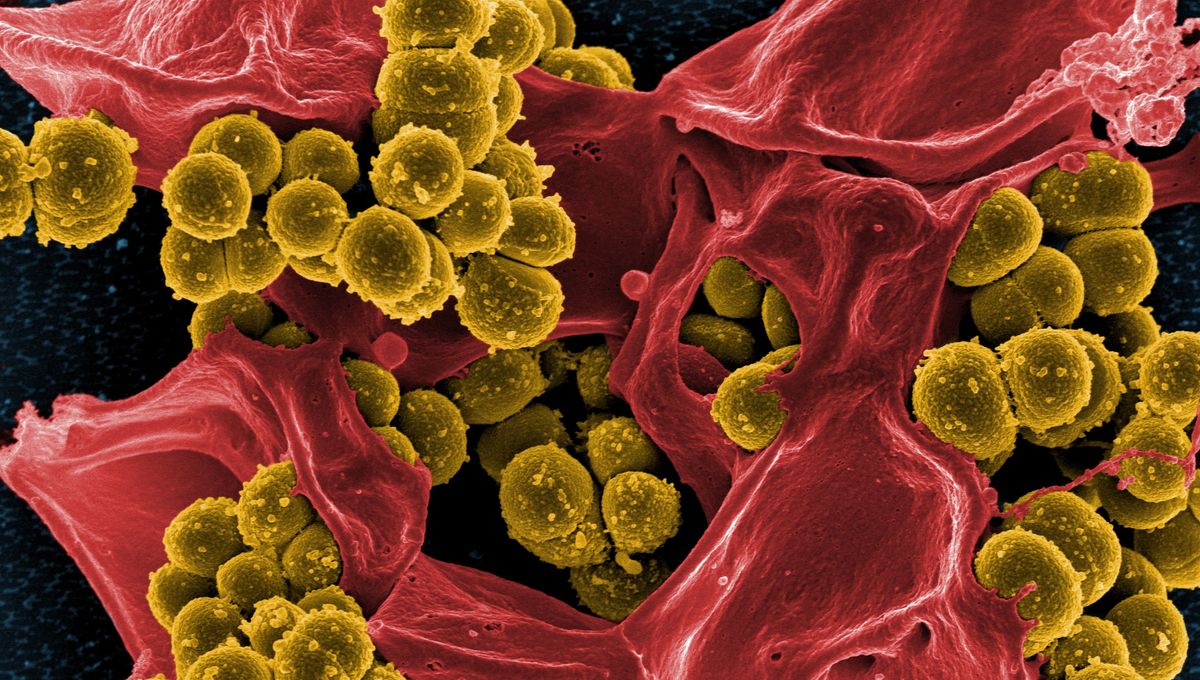
Most of us will have heard the word “superbug” in headlines, usually followed by the latest one we should be worried about – but what actually is a superbug? And why are people so concerned about them?
Super ≠ good
ADVERTISEMENT GO AD FREE
Superbugs are microorganisms – not just bacteria, but also viruses, parasites, and fungi – that can cause infectious diseases but can’t be stopped by the first choice of treatment. This is known as antimicrobial resistance (AMR), and some superbugs can even become resistant to multiple drugs.
They can develop this “superpower” through mutations of their DNA, some microbes surviving drug treatment and passing on the genes that allowed them to do so, or horizontal gene transfer. This can provide them with various ways of avoiding death by drug, such as proteins that can pump antimicrobial medicines out of the cell or break the drug down.
You might have heard of some bacterial examples of superbugs: methicillin-resistant Staphylococcus aureus (MRSA), some strains of Mycobacterium tuberculosis, and Pseudomonas aeruginosa. Certain strains of influenza viruses have developed resistance to antiviral drugs, as have some species of Aspergillus and Candida fungi. Plasmodium falciparum, which causes malaria, is an example of a parasite that can develop resistance to antimalarial treatments.
Why are superbugs dangerous?
The reason why superbugs are of concern is the same reason why they’re superbugs – being resistant to some drugs limits the number of avenues for treating an infection, and that means there’s a greater chance of it becoming more serious.
As an example, let’s take one of the most well-known superbugs: MRSA. Despite the name, MRSA can be resistant to more than just methicillin, and that can cause serious problems. Though it can start off as swollen, painful, red bumps on the skin where the bacteria has infected, the infection can spread deeper.
That can lead to more serious symptoms such as pneumonia and bloodstream infections. Without treatment, MRSA can end up leading to sepsis, or even death.
ADVERTISEMENT GO AD FREE
Though there are now newer drugs to tackle MRSA, that doesn’t mean it’s no longer a problem; it’s estimated to have killed 130,000 people worldwide in 2021. Not to mention, drug-resistant infections are still complicated – and often, that means expensive – to treat. That’s why it remained a priority for the World Health Organization (WHO) in its 2024 Bacterial Priority Pathogens List.
“The morbidity, mortality and health-care costs due to MRSA cannot be underestimated, and it remains a major concern due to its persistent prevalence and potentially severe infections,” the organization said in the list.
Can superbugs be stopped?
Unless something changes, the situation isn’t set to get any better either – and that goes for all kinds of AMR, not just MRSA. A recent study predicted the future global burden of AMR, and it’s not a pretty picture: Using data modeling, the authors estimated that deaths related to bacterial AMR could increase by nearly 75 percent.
The cause of this potential increase isn’t as simple as a single factor either; microorganisms can naturally evolve resistance over time, but AMR is thought to have been driven by overuse of antimicrobials, using antimicrobials incorrectly, lack of infection control, and an increasingly connected world. Researchers have even suggested that climate change can play a role – and, well, we’re not doing a very good job of sorting that.
ADVERTISEMENT GO AD FREE
It doesn’t sound great – but there is reason to hope that the forecasts won’t become reality.
“The projections for 2050, which estimate millions of annual deaths due to AMR, are daunting, but they are not inevitable,” study co-auhtors Tomislav Mestrovic, Affiliate Associate Professor at the Institute for Health Metrics and Evaluation (IHME); and Lucien Swetschinski, Research Scientist at the IHME, told IFLScience in 2024. “By increasing global focus on research, drug development, infection prevention and better patient care […] we can mitigate the worst outcomes.”
All “explainer” articles are confirmed by fact checkers to be correct at time of publishing. Text, images, and links may be edited, removed, or added to at a later date to keep information current.
The content of this article is not intended to be a substitute for professional medical advice, diagnosis, or treatment. Always seek the advice of qualified health providers with questions you may have regarding medical conditions.
Source Link: What Is A Superbug?